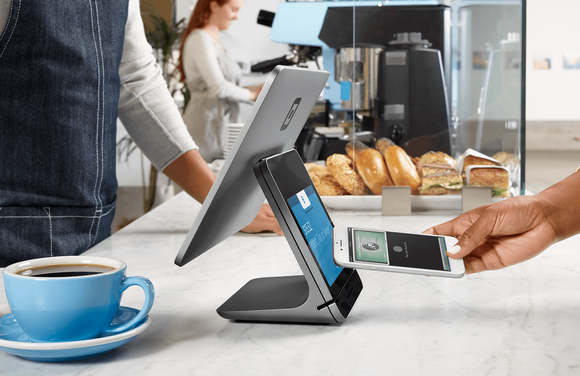Square Is Starting to Build a Moat
More than half of Square's (NYSE: SQ) large sellers used two or more Square products during 2017, according to comments from CEO Jack Dorsey on the company's first-quarter earnings call.
During Square's second-quarter earnings call last year, Dorsey explained how he expects the company to differentiate itself from the competition:
We talk a lot about "ecosystem," and what we mean by that is a suite of tools that work together ...
[T]hat larger ecosystem helps with retention. It helps a seller make more sales, and it makes us a lot more valuable to every one of our customers.
At an investors conference in March, CFO Sarah Friar noted the company is pushing to get more customers to take multiple products. Later that month, Square revamped pricing on its Appointments product to encourage merchants to use multiple services.
It seems all those efforts are paying off, and Square is starting to build a moat to protect it from competitors like PayPal (NASDAQ: PYPL) and First Data (NYSE: FDC).

Image source: Square.
A one-stop shop
The fact that Dorsey specifically called out large merchants as the ones adopting multiple products is not a surprise. Larger merchants need more to manage their business than smaller merchants, which might sign up for Square just to be able to accept credit cards. Larger merchants need to be able to manage multiple locations, they need to manage and pay employees, and they might have inventory to track as well.
Often a merchant will have to piece together a payments processor with other software and pay for it all separately. Square can provide additional products for all of those large-merchant needs, and it makes paying for them extremely simple.
"They're coming to Square because of the one-stop," Friar said about large merchants. "They're not having to deal with putting hardware and software together."
PayPal's PayPal Here and First Data's Clover also offer additional services to cater to large businesses, but often rely on third parties to integrate with their systems. Clover, in particular, has a wide range of third-party applications that integrate nicely with its platform for managing employee payroll, bookkeeping, and customer relations management. PayPal Here also offers point-of-sale solutions for the unique aspects of managing a storefront, restaurant, or services business through third-party partners.
But Square can offer those kinds of solutions directly to merchants, cutting out the go-between and simplifying things in the process. Square continues to iterate on its products, most recently releasing Square for Restaurants. It also recently agreed to acquire Weebly, to support more online businesses and help its smaller merchants establish a bigger web presence.
The one-stop shop can make things less expensive for merchants, both in price and in time spent managing all the different software they require. That gives Square a competitive advantage over PayPal and First Data when it comes to merchants looking for a solution to their various business needs.
Building a moat isn't exactly cheap
Square had a very strong first quarter, and it updated its revenue guidance as a result. It originally guided for $2.82 billion to $2.88 billion in full-year revenue, but it upped that to $3 billion to $3.06 billion. Guidance for adjusted revenue (revenue minus transaction expenses) increased to $1.4 billion to $1.43 billion, from $1.3 billion to $1.33 billion.
But guidance for adjusted EBITDA (earnings before interest, taxes, depreciation, and amortization), Square's preferred measure of profitability, isn't budging. "Given the significant market opportunity ahead of us, we will continue to reinvest in our business to drive future growth and are therefore maintaining our full-year Adjusted EBITDA guidance," management wrote in the first-quarter letter to shareholders.
Indeed, the company is building and acquiring new services and investing in marketing them to merchants. Aside from the aforementioned Weebly acquisition, in April Square also purchased Zesty, which complements services like Caviar and the recently launched Square for Restaurants.
Adjusted EBITDA came in at 12% in the first quarter, which is actually lower than it was in the first quarter last year. While adjusted revenue grew 51% year over year, for yet another quarter of accelerating revenue growth, sales and marketing expenses grew 55% and product development expenses grew 53%.
Even though some 80% of merchants -- even large merchants -- self-onboard without contact from a sales team, Square is investing in sales to support the growing ecosystem of services created by its product development team.
Long term, Friar says Square is targeting mid-single-digit EBITDA margin expansion annually. When asked whether investors should expect results to return to those levels, she responded, "We just feel so good about our business that we think the right thing to do is to keep reinvesting for that long-term platform growth."
More From The Motley Fool
Adam Levy has no position in any of the stocks mentioned. The Motley Fool owns shares of and recommends PayPal Holdings. The Motley Fool owns shares of Square. The Motley Fool has a disclosure policy.

 Yahoo Finance
Yahoo Finance 